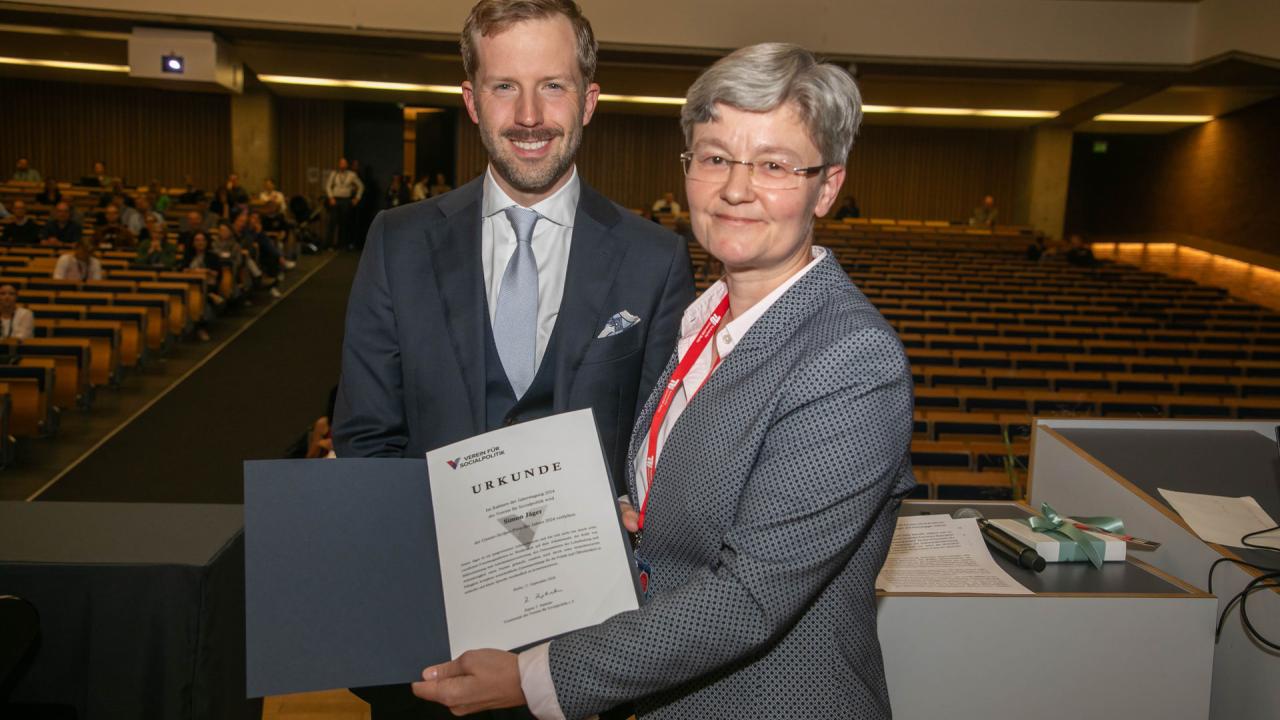Gustav Stolper Award 2024
The Gustav Stolper Award of the Year 2024 goes to Simon Jäger (MIT). Congratulations!

The Gustav Stolper Prize is awarded annually by the Verein für Socialpolitik (German Economic Association) to recognise outstanding academics who have influenced the public debate on relevant relationships and problems with their economic research findings and have made important contributions to understanding and solving economic problems on an international scale.
The prize is named after the economist, journalist and politician Gustav Stolper (1888 - 1947). Stolper became co-editor of the ‘Österreichischer Volkswirt’ in 1913 and emigrated to the USA after Hitler came to power, where he worked as an economic policy advisor to the commission of enquiry into the economic situation in Germany and Austria headed by Herbert Hoover.
Simon Jäger (MIT) is this year's recipient of the Gustav Stolper Prize, which is endowed with 5,000 euros. Simon Jäger is a proven labour economist and has made a name for himself not only through his excellent research work on the causes and consequences of inequality, competition on the labour market and unemployment, but also through his remarkable ability to communicate complex economic relationships to the interested public in an understandable way.
At a time when economic issues are often characterised by misunderstandings and misinformation, Simon Jäger's commitment to clear and precise communication is invaluable. He has understood how to present scientific content in a way that makes it accessible to a wide audience. In this way, he builds a bridge between science and the public.
Simon Jäger is an honorary advisor to the Federal Ministry of Economics. In this role, he helps to meet current challenges with evidence-based solutions. He emphasises, for example, that companies can do a lot to counter the shortage of skilled workers, for example through higher wages and better working conditions. With simple instruments such as greater wage transparency, more flexible working hours and tapping into untapped potential in the area of mini-jobs, competition on the labour market can be improved and the labour shortage counteracted.
‘Simon Jäger has not only made a name for himself through his excellent research work, but also through his remarkable ability to communicate complex economic relationships in simple and clear language,’ lauded Regina T. Riphahn, Chairwoman of the Verein für Socialpolitik.
Simon Jäger studied economics at the University of Bonn and UC Berkeley and received his doctorate from Harvard University, where he was honoured with the David Wells Prize for the best dissertation in economics. He is Associate Professor of Economics at the Massachusetts Institute of Technology (MIT). In addition, he is a Faculty Research Fellow at the National Bureau of Economic Research (NBER), a Fellow of the Centre for Economic Policy Research (CEPR) and affiliated with many other outstanding academic institutions.